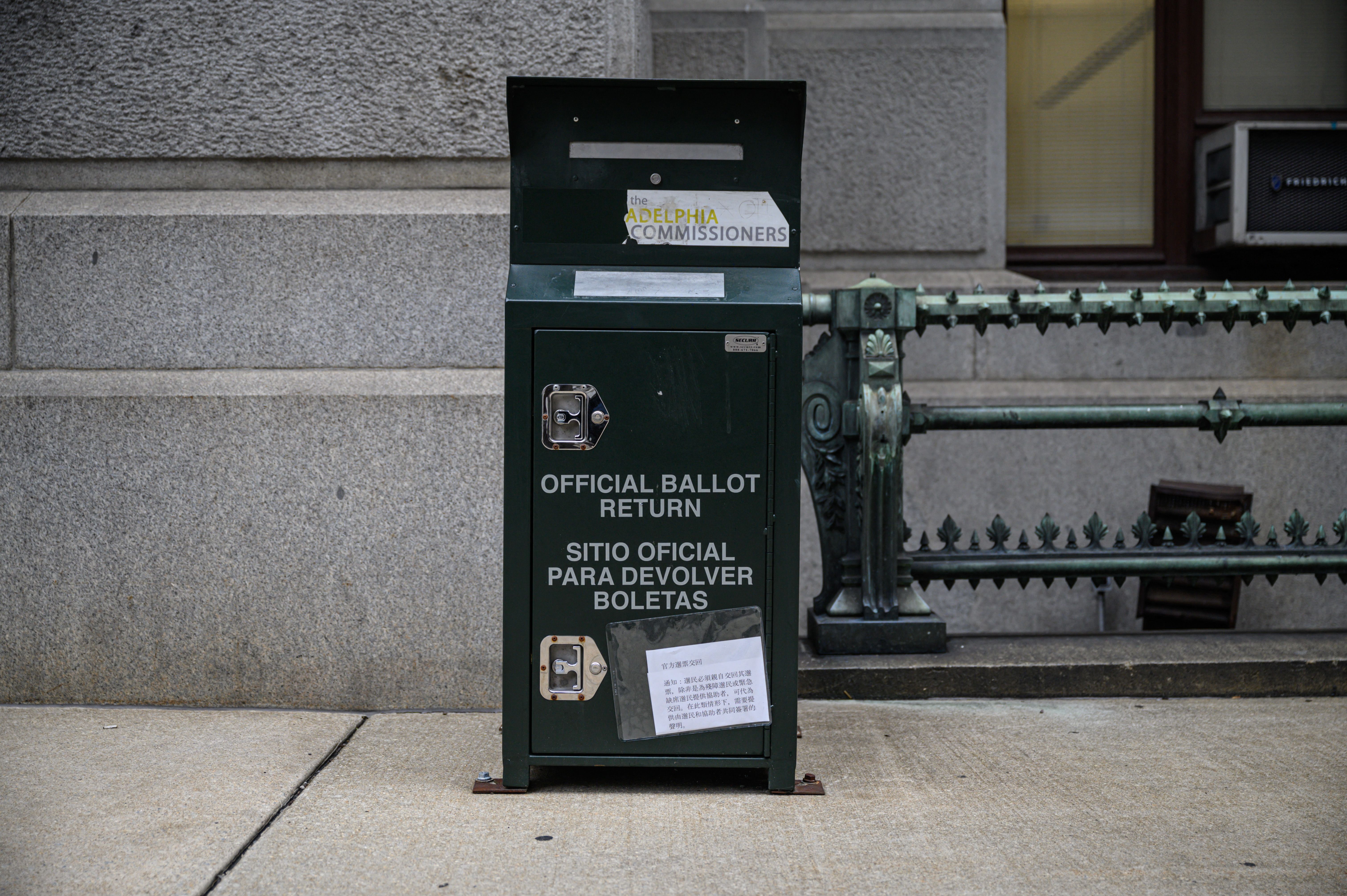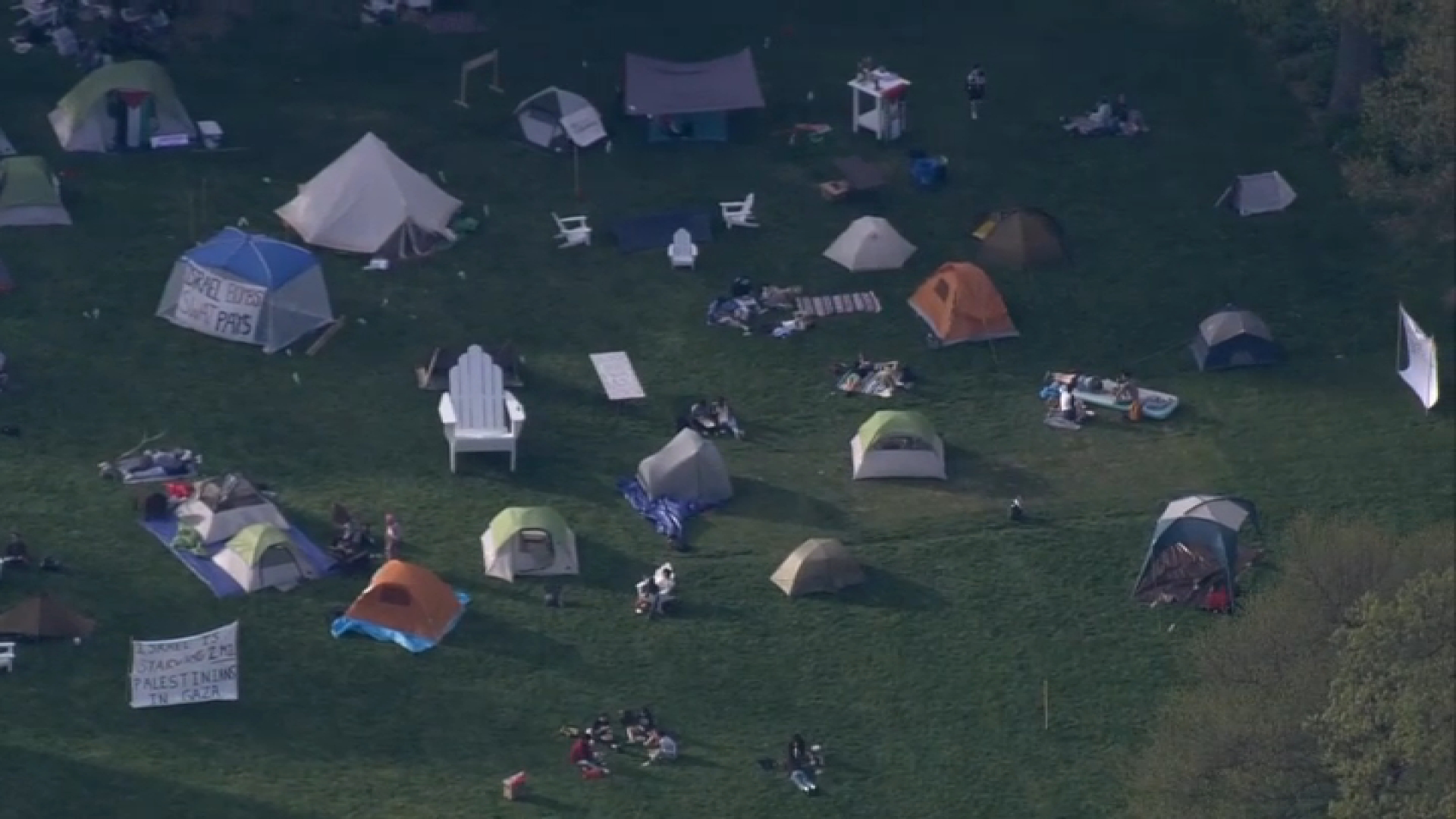Hoarding has become a bit of a spectacle these days. Reality TV shows like "Hoarders" or "Buried Alive" have viewers sitting on the edge of their couches, wondering just what junk — or creatures might be in the next room. Remember that bedroom crawling with roaches?
But, hoarding — holding on and collecting things in extreme forms — is an expression of mental illness, and psychiatrists now recognize it as a distinct disorder. As people get older, the condition can get worse, and sometimes it's up to the next generation to clean up.
"You couldn't get into this room six months ago. It was mountains," recalled Lisa Friedman, standing in her mother's Havertown home. Her mother, Marilyn Friedman, used the screen name Margo; she had small roles in movies, and wrote articles and short stories. She lived in her house for 62 years.
"[That's a] pretty long time to be collecting things," said her daughter.
The house looks shabby, furniture, books, papers, clothes are everywhere, making it hard to walk. In one corner, hundreds of cassette tapes are stacked. Marilyn used to enjoy taping conversations with guests.
Stuff is messy, perhaps even a bit repulsive. But it tells a story — it reveals a person's dreams, and whispers about their losses.
Local
Breaking news and the stories that matter to your neighborhood.
"My mom was married for decades, then dad left for a vacation in Florida and never came back, so he left her with this house, and no money," said Lisa Friedman. Her father divorced her mother, got remarried, and died soon after.
Last year, Marilyn Friedman had to move into a nursing home after she broke her hip. Her daughter thinks she fell because of all the stuff that was creating tripping hazards all over her house.
Lisa began to dig through layers and layers of her mother's stuff — and the belongings of other people she had started to collect.
It started with newspaper clippings
"I knew from the time I was a teenager that something wasn't right. She just loved collecting clippings, and I wasn't sure, because she said she wanted to use them in her writing, but I knew other people's houses didn't look like ours," said Lisa Friedman.
Friedman remembers a time when she hid from a friend who knocked on her door. She didn't want the other girl to see the inside of the house.
Upstairs, Marilyn Friedman's former bedroom is filled with beautiful gowns, flashy outfits, jewelry, handbags, shoes. Lisa says her mother always dressed like a movie star. "She loved to pose for pictures, a beautiful woman."
After her father left, her mother's hoarding escalated, said Friedman. She would offer to help her clean, but her mother didn't want help, and didn't want to part with her belongings. She started to hoard other people's things, too.
Collecting memories
"This is a friend of hers, who was a Russian Olympic ice skater, and mom collected news articles and photographs of her, and has kept these in the house. I think she had to keep those so she could keep seeing the people who had passed on. Lisa Friedman even found the figure skater's ashes in her mother's house.
She says the process of cleaning out her mother's house has been exhausting and overwhelming, but it has allowed her to reconnect with her own childhood, and her family history. We drove to visit Marilyn Friedman at the nursing home where she now stays. She says she misses her home, and all of her things.
Help for hoarders and their families
Hoarding is especially difficult with older populations says Dr. Linda Welsh — she directs the anxiety and agoraphobia treatment center in Bala Cynwyd. Mountains of things pose a greater health risk for older people — and their habit might get worse if they develop dementia. I asked her a few questions about treatment, awareness and advice.
What does treatment look like for hoarding?
Treatment looks very much like it does for anxiety disorders and depression, cognitive behavioral therapy is certainly indicated, we have to understand the thought process of the person who hoards, and the behavior often runs in families, there is clearly a biological component, and we now know that hoarding brains look a little bit different.
Are hoarders usually aware that they have an issue?
Mostly not, a lot of them are in denial, and have very good reasons for living the way they live. It's very difficult, and there's not a lot of motivation to change, it's usually that their behavior is a bother to others. When you investigate their motives, it's often that they worry, they want to make sure that things are protected, that they have what they need, and that other people are taken care of. I had a patient who collected newspapers, and I asked her about the meaning. She said she holds on to obituaries, because she doesn't want to think that people disappear and there is nothing left of them.
What's your advice for families who have an elderly loved one who is hoarding?
First of all, lose the judgment. The worst thing to do in terms of approaching a person is to say "this is a mess." You have to understand that your relative may be very attached to their things. Be practical, and have a conversation.
"Do you want to change this situation? Can we organize things differently, to make sure you are safe?"
If this doesn't work, you have to bring in a professional counselor, and you might also have to discuss medication with their healthcare provider, sometimes anti-anxiety medications can help people who are hoarders.



